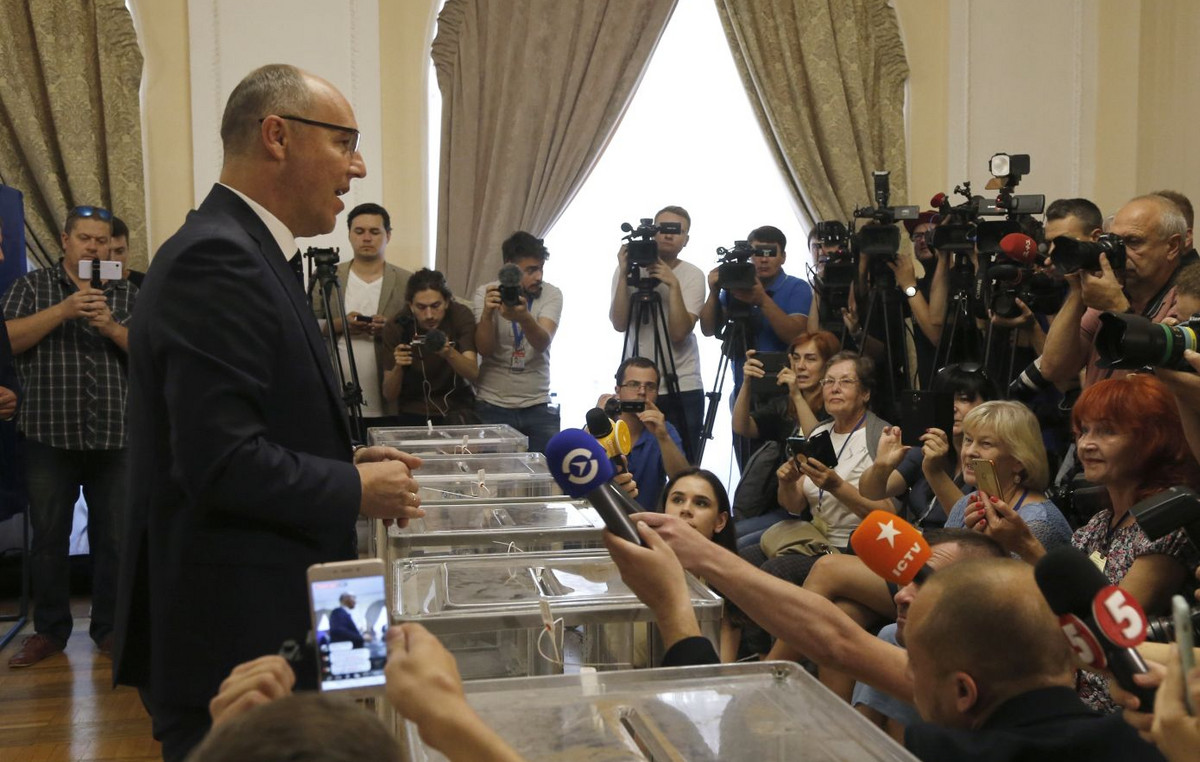The arrest of American academic Paul Chamber in Thailand, accused of insulting the monarchy, “alarmed” the United States, the State Department said in a case of a foreigner allegedly breaking the rigorous Lesa-Majesty Law of the Kingdom.
Naresuan University professor in the center of Thailand, who writes analyzes of the Armed Forces and the politics of the Kingdom, can take years in prison after formally accused and detained when reporting to the police and court on Tuesday (8).
Thailand has some of the most strict Lesa-Majesty laws in the world, and criticizing the king, the queen, or heir can lead to a maximum penalty of 15 years in prison for each infraction.
Anyone can submit a lesa-majestade complaint and sentences for convicts can last decades, with hundreds of people prosecuted in recent years.
Chamber’s lawyer Wannaphat Jenroumjit said an arrest warrant against him was issued last week after a complaint filed by a regional army command. In addition to Lesa-Majesty, Chambers also faces charges under the computer crimes law.
“He was accused of publishing a synopsis on the site [do Instituto de Estudos do Sudeste Asiático de Singapura] With a Webinar from Iseas in October 2024 on military reorganizations, ”said Akarachai Chaimaneekarakate, Thai Lawyers of Thai Lawyers for Human Rights and a member of Chambers’ legal team.
“He denied all the accusations. He didn’t write or published the synopsis on the site,” said Akarachai.
Speaking before his judicial hearing on Tuesday, Chambers told the CNN that he was not very well informed about the reason for the prosecution and feared “to be sentenced to 15 years in prison.”
Chambers is in pre -trial detention after his request for bail denied. Your lawyers will submit another bail request on Wednesday (9).
Chambers is an academic, author and professor at the Naresuan University Asean Center for Community Studies and contributes to journalistic articles on Southeast Asia, including the CNN .
Defenders say the accusations represent “a serious threat to academic freedom in the country.”
“Unlike other cases of majestade, this case involves an extremely successful academic whose work is deeply focused on civil-military relations in Thailand and whose expertise is widely recognized by the academic community,” said Akarachai.
The US State Department said on Tuesday it was “alarmed” with the arrest of Chamber and that it is providing consular assistance.
“We are in communication with the Thai authorities about this case,” said State Department spokesman Tammy Bruce in a statement.
“As Thailand’s allies in treaties, we will closely monitor this issue and defend the fair treatment of Paul Chambers … We ask for access to him to ensure his well-being and provide all the necessary support,” he added.
The Thai Conservative Parliament, supported by the military, rules the country intermittently for decades, and critics claim that he routinely uses laws such as lesa-jestade, sedition and the cyber crimes law to silence criticism and opposition.
The military has long been influenced by the country’s politics, although the Thai repeatedly vote overwhelmingly, in support of the military’s political and progressive opponents.
The country held 13 successful blows since the end of the absolute monarchy in 1932, the last in 2014, which marked the beginning of just under a decade of military government or supported by the military.
50 -year -old
Last year, a Thai appeal court extended a man’s prison sentence to a 50-year record for insulting the monarchy, which is believed to be the most severe penalty ever imposed under the Lesa-Majesty law.
Charges against Chamber represent an “increasing strangulation of freedom of expression and academic freedom in Thailand,” said Sunai Phasuk, senior researcher at Human Rights Watch in Thailand.
“Paul is considered an important target of ultramonarist groups, which have launched several attacks on him for years-from online misinformation and hate campaigns to pressing the authorities to revoke his visa and expel him from the university,” Sunai told the CNN .
It is rare for a foreigner to be the target of a Majesty. In 2011, Thai American Joe W. Gordon was sentenced to 2 and a half years in prison for insulting the monarchy after publishing a link to a biography of King Bhumibol adult, whose translation was prohibited in Thailand.
He was later released after receiving a real forgiveness.
For years, human rights organizations and freedom of expression advocates said the law was used as a political tool to silence critics of the Thai government.
And rights groups say that the right to freedom of expression in Thailand has suffered increasing attacks since 2020, when protests led by young people across the country took millions of young people to the streets asking for constitutional and democratic reforms.
This was the first time that criticism was openly made to the monarchy and public questions about their power and wealth were raised.
These protests occurred four years after King Maha Vajiralongkorn succeeded his father, King Bhumibol, who reigned for seven decades.
Despite the change of a government supported by the military to civil leadership in 2023, surveillance and intimidation against activists and students continue, according to Thai Lawyers for Human Rights.
The Legal Advocacy Group said that from the beginning of these protests, in July 2020, until the end of January 2025, at least 1,960 people have been prosecuted or accused for their participation in political assemblies and for manifesting, with at least 277 processed by a Majestade.
One of the most prominent is Arnon Nampa, a Thai activist with an 18-year-year-old cumulative sentence for a series of Lesa-Jajesty accusations and others related to his monarchy reform defense during the 2020 protests.
A bill that would offer amnesty for those processed in cases with political motivation will be presented to the Thailand Parliament on Wednesday. However, there is a debate ongoing whether the Majesty Lesa will be included in the bill.
The high profile nature of the Chamber case may mean that it goes out of the Culatra for the military and has broader impacts on Thai society, some analysts say.
“The cost to the Thai army is high because it will attract international attention that the army wants to avoid,” said Thitinan Pongsudhirak, a political scientist at Chulaloongkorn University.
“This case tightens the lid of academic freedom and will reinforce the closure of Thai minds and will undermine the intellectual and research ecosystem needed to foster ideas and innovation to boost the Thai economy forward,” he added.
This content was originally published in the USA are “alarmed” about American arrested in Thailand by Lesa-Majestade on CNN Brazil.
Source: CNN Brasil
Bruce Belcher is a seasoned author with over 5 years of experience in world news. He writes for online news websites and provides in-depth analysis on the world stock market. Bruce is known for his insightful perspectives and commitment to keeping the public informed.







